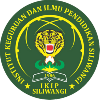LEARNING STRATEGIES OF HIGH ENGLISH PROFICIENCY STUDENTS MAJORING IN INFORMATION SYSTEMS
Abstract
This qualitative exploratory study, utilizing the Strategy Inventory of Language Learning (SILL), examines English learning strategies among 16 high English proficiency students majoring in Information Systems. The research aims to uncover critical insights into their English language learning strategies. The results revealed two primary findings. Firstly, metacognitive strategies emerged as the most highly used strategy, with 57% of respondents using it. Metacognitive strategies, characterized by their indirect nature, enable learners to take charge of their learning process. It highlights the significance of metacognitive reflection and decision-making skills in improving English proficiency. Secondly, within each learning strategy category, three strategy actions demonstrated strikingly similar usage percentages, each at 87.5%. These strategy actions encompass focused listening during English conversations, practicing English phonetics, and creating mental associations with new words in contextual scenarios. This research underscores the significance of metacognitive strategies and practical English language learning techniques among high English proficiency students majoring in Information Systems. Future studies using a variety of research instruments can contribute positively to providing more comprehensive insights into English learning strategies.
References
Afriyuninda, E., & Oktaviani, L. (2021). the Use of English Songs To Improve English Students’ Listening Skills. Journal of English Language Teaching and Learning, 2(2), 80–85. https://doi.org/10.33365/jeltl.v2i2.1442
Almubaroq, H. Z. (2023). Realize Gold Indonesia In 2045 Through 21st Century Proficiency Education. Journal of Namibian Studies, 36, 30–54.
Altunay, D. (2014). Language learning strategies used by distance learners of English: A study with a group of Turkish distance learners of EFL. Turkish Online Journal of Distance Education, 15(3), 291–305. https://doi.org/10.17718/tojde.30083
Andayani, E. S. (2022). the Importance of Learning and Knowing English in Higher Education in Indonesia. Research and Development Journal Of Education, 8(1), 372–379. http://dx.doi.org/10.30998/rdje.v8i1.13315
Ariffin, K., Halim, N. A., & Darus, N. A. (2021). Discovering Students’ Strategies in Learning English Online. Asian Journal of University Education, 17(1), 261–268. https://doi.org/10.24191/ajue.v17i1.12695
Aziz, S. N. S. M., & Shah, P. M. (2020). LANGUAGE LEARNING STRATEGY ( LLS ) FOR ENGLISH. Journal of Personalized Learning, 3(1), 71–78.
Barnett, M. (1989). More than meets the eye. In More than meets the eye. Prentice Hall.
Djabborova, F. O. (2020). Ways of Developing Listening Skills of English. European Journal of Research and Reflection in Educational Sciences, 8(10), 212–216. www.idpublications.org
Dumarni, S. A. (2018). Students’ Strategies in Reducing Anxiety in Speaking English Performance. STATE UNIVERSITY OF MAKASSAR.
Huang, S., & Eslami, Z. (2013). The Use of Dictionary and Contextual Guessing Strategies for Vocabulary Learning by Advanced English-Language Learners. English Language and Literature Studies, 3(3), 1–7. https://doi.org/10.5539/ells.v3n3p1
Ibrahim, M., Soepriadi, D. N., Limbong, S., & Sasabone, L. (2023). Non EFL Students ’ Perception in English Language Learning Strategies ( LLS ) in the Digital Era. Al-Ishlah: Jurnal Pendidikan, 15(1), 587–596. https://doi.org/10.35445/alishlah.v15i1.2687
Illinois State University. (2023). Information Systems - Systems Development. https://illinoisstate.edu/academics/systems-development-masters/
Isadaud, D., Fikri, M. D., & Bukhari, M. I. (2022). The Urgency Of English In The Curriculum In Indonesia To Prepare Human Resources For Global Competitiveness. DIAJAR: Jurnal Pendidikan Dan Pembelajaran, 1(1), 51–58. https://doi.org/10.54259/diajar.v1i1.177
Kaivanpanah, S., & Alavi, M. (2008). Deriving unknown word meaning form context: Is it reliable? RELC Journal, 39(1), 77–95. https://doi.org/http://dx.doi.org/10.1177/0033688208091141
Kim, G., & Bae, J. (2020). A study into students’ use of digital english learning strategies in tertiary education. Teaching English with Technology, 20(1), 21–42.
Kooli, C. (2023). Chatbots en educación e investigación: un examen crítico de las implicaciones y soluciones éticas. Sustainability (Switzerland), 15(7).
Lavasani, M. G., & Faryadres, F. (2011). Language learning strategies and suggested model in adults processes of learning second language. Procedia - Social and Behavioral Sciences, 15, 191–197. https://doi.org/10.1016/j.sbspro.2011.03.072
Lestari, M., & Wahyudin, A. Y. (2020). Language Learning Strategies of Undergraduate Efl Students. Journal of English Language Teaching and Learning, 1(1), 25–30. https://doi.org/10.33365/jeltl.v1i1.242
Lestari, T. M., & Fatimah, S. (2020). An Analysis of Language Learning Strategies Used by EFL Student Teachers at English Language Education Program Universitas Negeri Padang. Journal of English Language Teaching, 9(1), 333–345. http://ejournal.unp.ac.id/index.php/jelt/article/view/108314
Mann, A., Denis, V., Schleicher, A., Ekhtiari, H., Forsyth, T., Liu, E., & Chambers, N. (2018). Teenagers’ Career Aspirations and the Future of Work. oecd.org
Mukhiya, S. K., & Ahmed, U. (2020). Hands-On Exploratory Data Analysis with Python: Perform EDA techniques to understand, summarize, and investigate your data. Packt Publishing Ltd.
Nation, P. (2001). Learning vocabulary in another language. Cambridge University Press.
Oxford, R. (1990). Language learning strategies:What every teacher should know. Heinle & Heinle.
Pawlak, M. (2021). Investigating language learning strategies: Prospects, pitfalls and challenges. Language Teaching Research, 25(5), 817–835. https://doi.org/10.1177/1362168819876156
Rianto, A. (2020). A Study of Language Learning Strategy Use among Indonesian EFL University Students. Register Journal, 13(2), 231–256. https://doi.org/10.18326/rgt.v13i2.231-256
Shaturaev, J. (2021). Indonesia: Superior Policies and Management for Better Education (Community development through Education). Архив Научных Исследований, 20, 1–10. https://www.researchgate.net/publication/357271101
Swedberg, R. (2020). Exploratory research. The production of knowledge: Enhancing progress in social science.
Universitas Bina Sarana Informatika. (2023). VISI & MISI SISTEM INFORMASI (S1 & D3).
University of Michigan-Flint. (2023). MASTER OF SCIENCE IN COMPUTER SCIENCE & INFORMATION SYSTEMS. https://www.umflint.edu/graduateprograms/computer-science-information-systems-ms/
Zahedi, Y., & Abdi, M. (2012). The Impact of Imagery Strategy on EFL Learners’ Vocabulary Learning. Procedia - Social and Behavioral Sciences, 69(Iceepsy), 2264–2272. https://doi.org/10.1016/j.sbspro.2012.12.197
Downloads
Published
Issue
Section
License

This work is licensed under a Creative Commons Attribution-ShareAlike 4.0 International License.











